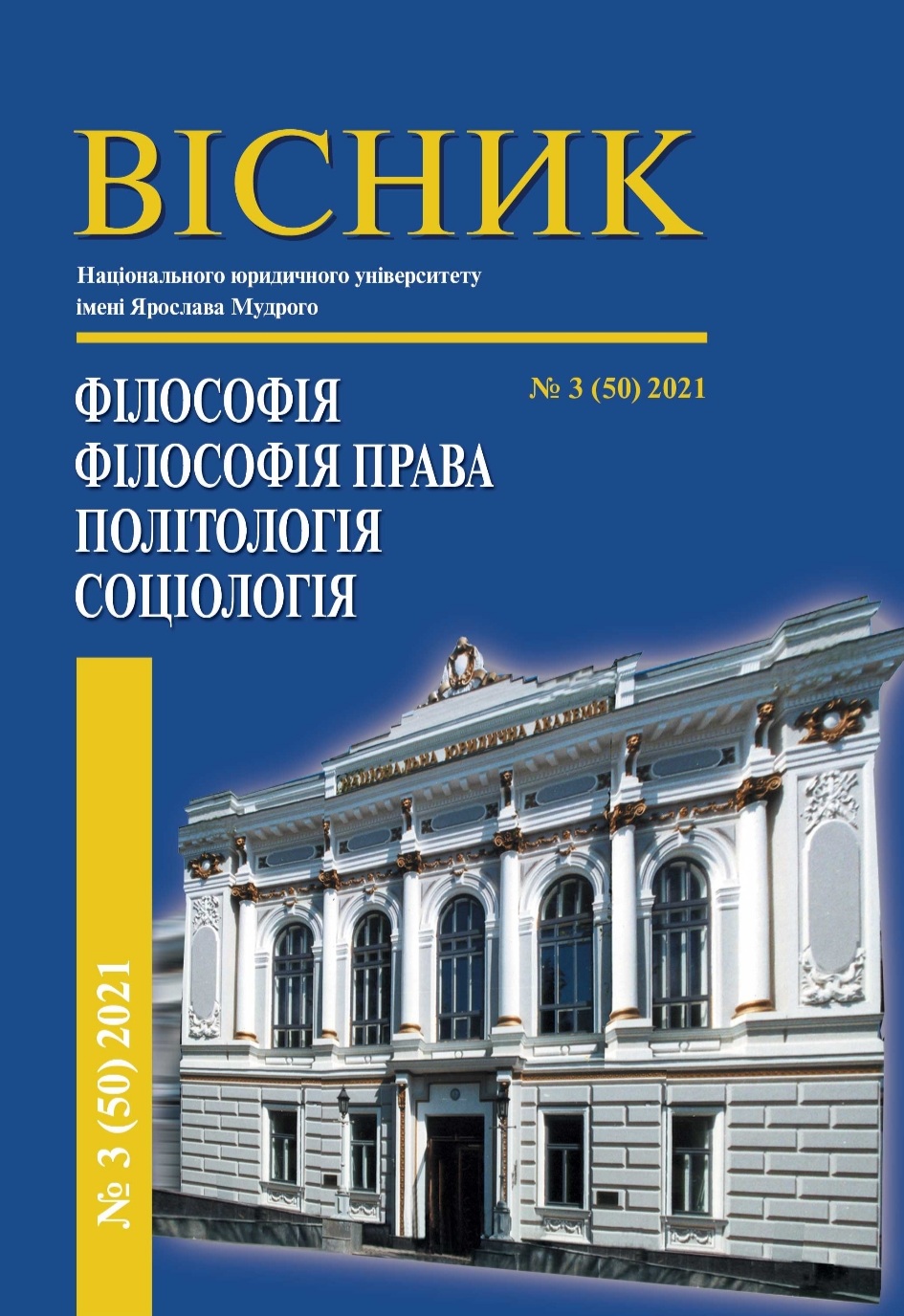ГІБРИДНА ЕПІСТЕМОЛОГІЯ: ЕМЕРДЖЕНТНІ ФОРМИ ЗНАННЯ В ЕПОХУ КОГНІТИВНОЇ ІНТЕГРАЦІЇ ЛЮДИНИ ТА ШТУЧНОГО ІНТЕЛЕКТУ
DOI:
https://doi.org/10.21564/2663-5704.66.337968Ключові слова:
штучний інтелект, епістемологія, розподілене пізнання, розширений розум, епістемічна непрозорість, когнітивна агенція, взаємодія людини та машиниАнотація
У статті представлено гібридну епістемологію як підхід до розуміння того, як формується знання у процесі когнітивної взаємодії людини та штучного інтелекту. Традиційна філософія розглядала знання як те, що окрема особа здобуває через досвід або раціональне мислення. Однак цей погляд уже не відображає сучасну реальність. У дослідженні розглядаються три ключові виклики: як оцінювати пізнавальні твердження, якщо процес мислення містить непрозорі алгоритми? Що відбувається, коли мережі довіри замінюють традиційні методи обґрунтування? Як розподіляється когнітивна відповідальність у партнерстві між людиною та машиною? Ці питання мають значення, оскільки гібридні системи знання вже впливають на медичні діагнози, юридичні рішення та політичні вибори, що безпосередньо стосуються життя людей.
Посилання
Clark, A., & Chalmers, D. (1998). The extended mind. Analysis, 58 (1), 7–19. URL: https://doi.org/10.1093/analys/58.1.7.
Hutchins, E. (1995). Cognition in the wild. MIT Press.
Latour, B. (1987). Science in action: How to follow scientists and engineers through society. Harvard University Press.
Jumper, J., Evans, R., Pritzel, A., et al. (2021). Highly accurate protein structure prediction with AlphaFold. Nature, 596 (7873), 583–589. URL: https://doi.org/10.1038/s41586-021-03819-2.
Burrell, J. (2016). How the machine 'thinks': Understanding opacity in machine learning algorithms. Big Data & Society, 3 (1), 1–12. URL: https://doi.org/10.1177/2053951715622512.
Humphreys, P. (2009). The philosophical novelty of computer simulation methods. Synthese, 169(3), 615–626. URL: https://doi.org/10.1007/s11229-008-9435-2.
Goldman, A. I. (2001). Experts: Which ones should you trust? Philosophy and Phenomenological Research, 63 (1), 85–110. URL: https://doi.org/10.1111/j.1933-1592.2001.tb00093.x.
Hardwig, J. (1991). The role of trust in knowledge. The Journal of Philosophy, 88 (12), 693–708. URL: https://doi.org/10.2307/2027007.
Matthias, A. (2004). The responsibility gap: Ascribing responsibility for the actions of learning automata. Ethics and Information Technology, 6 (3), 175–183. URL: https://doi.org/10.1007/s10676-004-3422-1.
Mittelstadt, B. D., Allo, P., Taddeo, M., Wachter, S., & Floridi, L. (2016). The ethics of algorithms: Mapping the debate. Big Data & Society, 3 (2), 1–21. URL: https://doi.org/10.1177/2053951716679679.
Fricker, M. (2007). Epistemic injustice: Power and the ethics of knowing. Oxford University Press. URL: https://doi.org/10.1093/acprof:oso/9780198237907.001.0001.
O’Neil, C. (2016). Weapons of math destruction: How big data increases inequality and threatens democracy. Crown.
Rudin, C. (2019). Stop explaining black box machine learning models for high stakes decisions and use interpretable models instead. Nature Machine Intelligence, 1 (5), 206–215. URL: https://doi.org/10.1038/s42256-019-0048-x.
Russell, S. (2019). Human compatible: Artificial intelligence and the problem of control. Viking.
Zagzebski, L. T. (1996). Virtues of the mind: An inquiry into the nature of virtue and the ethical foundations of knowledge. Cambridge University Press.
Hoff, K. A., & Bashir, M. (2015). Trust in automation: Integrating empirical evidence on factors that influence trust. Human Factors, 57 (3), 407–434. URL: https://doi.org/10.1177/0018720814547570.
Marx, K. (1988). Economic and philosophic manuscripts of 1844 (M. Milligan, Trans.). Prometheus Books.
Heidegger, M. (1962). Being and time (J. Macquarrie & E. Robinson, Trans.). Blackwell.
Ihde, D. (1990). Technology and the lifeworld: From garden to earth. Indiana University Press.
Ihde, D. (2009). Postphenomenology and technoscience: The Peking University lectures. SUNY Press.
Hayles, N. K. (2017). Unthought: The power of the cognitive nonconscious. University of Chicago Press. URL: https://doi.org/10.7208/chicago/9780226447919.001.0001.
Boden, M. A. (2004). The creative mind: Myths and mechanisms (2nd ed.). Routledge.
Floridi, L., & Sanders, J. W. (2004). On the morality of artificial agents. Minds and Machines, 14(3), 349–379. URL: https://doi.org/10.1023/B:MIND.0000035461.63578.9d.
Livingstone, S., & Helsper, E. J. (2007). Gradations in digital inclusion: Children, young people and the digital divide. New Media & Society, 9 (4), 671–696. URL: https://doi.org/10.1177/1461444807080335.
Selwyn, N. (2019). What's the problem with learning analytics? Journal of Learning Analytics, 6 (3), 11–19. URL: https://doi.org/10.18608/jla.2019.63.3.




